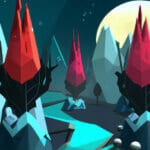Welcome to today’s tutorial where we’ll unlock the intriguing world of Roblox Lua. Lua, a powerful and intuitive scripting language, is the heart of game development on Roblox. Whether you’re a budding developer or a seasoned coder adding another tool to your arsenal, this tutorial is tailored for you.
Table of contents
What is Roblox Lua?
Lua is an embedded scripting language used in Roblox that empowers developers to create, control, and manage in-game experiences. Through Lua, you can create anything from simple scripts to complex, multi-dimensional games.
Why should you learn Roblox Lua?
There are numerous reasons to learn Roblox Lua:
- Interactive Learning: Learning Lua is made engaging with Roblox’s immersive platform where you can watch your game unfold as you code.
- Potential for Revenue: By mastering Lua, you can create games and make them available to the huge community of Roblox players, potentially earning revenue.
- Critical Thinking: Coding with Lua fosters logical thinking and problem-solving skills, valuable assets in all walks of life.
Remember, every innovation starts small. As you gradually grow comfortable with the syntax and logic in Lua, you’ll soon be able to create amazing things! We begin our journey into Roblox Lua by understanding the basic syntax and structure of the language. Let’s dive in.
Getting Started with Roblox Lua
To kick things off, let’s start with a basic print command in Lua:
print("Hello, Zenva!")This command displays the string “Hello, Zenva!” in the command output. print” is a built-in Lua function that makes text output to the console.
Understanding Variables
Variables in Lua are containers that hold values. They are declared as follows:
local myVariable = "Welcome to Zenva"
In this example, “myVariable” is the variable, and it holds the string “Welcome to Zenva”. Note the use of “local” to declare a variable.
String Concatenation
In Lua, you can combine two strings, a process called concatenation. Here’s how:
local greeting = "Hello, " local name = "Zenva" local fullGreeting = greeting .. name print(fullGreeting)
The “..” operator is used for concatenation, and running this will output “Hello, Zenva.
Understanding Lua Tables
Tables in Lua are unique – they can hold values of all types, including functions. Declaring a table is simple:
local myTable = {“apple”, “banana”, “cherry”}In the above example, “myTable” is a table with three elements: “apple”, “banana”, and “cherry”. Tables in Lua are also zero-indexed, meaning the first element starts with 1.
To access an element in a table, we use this format:
print(myTable[1]) -- This will output "apple"
We’ll explore these concepts and more as we dive deeper into Roblox Lua programming. Be sure to join us in the upcoming parts of this tutorial!
Manipulating Lua Tables
Tables are incredibly versatile in Lua. Let’s explore how we can manipulate and utilize tables further.
To add an element to the table, we write:
table.insert(myTable, "pear") print(myTable[4]) -- This will output "pear"
With the help of the “table.insert()” function, we’ve added “pear” to the end of our table.
If we want to remove an element from our table, we can use the “table.remove()” function as follows:
table.remove(myTable, 1) print(myTable[1]) -- This will output "banana"
Now “apple”, the first element in our table, is removed. As such, “banana” becomes the first element in the revised table.
Conditionals in Lua
Conditionals are a fundamental part of Lua programming. With conditionals, you can execute certain blocks of code based on specific conditions.
Here’s an example of how to use if-else conditionals in Lua:
local number = 10
if number > 5 then
print("Number is greater than 5")
else
print("Number is less than or equal to 5")
endIn this code, because the variable “number” is greater than 5, the output would be “Number is greater than 5”.
Loops in Lua
Loops are an essential concept in Lua, and they allow us to execute a block of code several times.
We begin with a simple ‘for’ loop:
for i = 1, 5 do
print(i)
endThe above loop has a counter ‘i’ that starts at 1 and ends at 5, and it will print the numbers 1 through 5.
In the following parts of this tutorial, we’ll delve into the fundamental concepts that truly define Roblox Lua. Don’t hesitate to follow along and experiment as we continue to explore this fascinating language. Happy programming!
Functions in Lua
Functions in Lua are reusable blocks of code that can be called anywhere in your program. They’re a key aspect of maintaining clean, organized code.
Here’s a simple function that prints a greeting:
function greet()
print("Hello, Zenva!")
end
greet() -- Calls the function, printing "Hello, Zenva!"Functions can also accept parameters, making them even more flexible:
function greet(name)
print("Hello, " .. name .. "!")
end
greet("Zenva") -- Calls the function, printing "Hello, Zenva!"Key concept: Scope in Lua
Variables in Lua have two types of scope: global and local. Global variables are accessible throughout your program, while local variables are only accessible within the scope they’re defined.
myGlobal = "I can be accessed anywhere!" -- global scope
function myFunction()
local myLocal = "I can only be accessed within myFunction." -- local scope
print(myGlobal) -- This will print "I can be accessed anywhere!"
print(myLocal) -- This will print "I can only be accessed within myFunction."
end
print(myGlobal) -- This will print "I can be accessed anywhere!"
print(myLocal) -- Error: attempt to call a nil value (global 'myLocal')It’s advantageous to use local variables where possible, to prevent potential name collisions or accidental modifications to a variable from different parts of your program.
Understanding the ‘nil’ Value
In Lua, “nil” is a type that has one value: “nil”. It usually conveys the absence of a useful value or indicates the end of lists with no fixed length.
local missingValue = nil print(missingValue) -- This will print "nil"
These building blocks form the foundation for much of your adventures in Roblox Lua programming. As you continue to experiment and build, remember that patience and practice are the pillars of mastering any new programming language. Happy coding!
Where to Go Next?
Now that you’ve taken your first steps into the world of Roblox Lua, it’s time to propel your learning forward and dig deeper. An ideal next step for you could be mastering our comprehensive online training program – the Roblox Game Development Mini-Degree. This program delves into a wide array of topics, from Roblox basics and scripting to creating melee battle games and first-person shooter games.
Roblox is a platform that attracts over 160 million users monthly, and with this mini-degree, you can capitalize on its features to create multiplayer games, utilize its vast asset library, and even monetize your games. Learning game development with Roblox can open doors to opportunities in the booming gaming market and equip you with skills for high-value jobs.
In addition to this Mini-Degree, we also offer a broader collection of individual courses catering to learners at all levels. Our Roblox curriculum is flexible, including video lessons, quizzes, practical projects, enabling you to build a professional portfolio while learning at your own pace. At Zenva, we empower you to go from beginner to professional, gain in-demand skills, and boost your coding career. Happy learning!
Conclusion
Roblox Lua is a gateway to creating exciting, immersive games, engaging millions of players worldwide. Its potential as a learning tool and revenue source is vast. Remember, with programming, consistency is key – carry on coding, experimenting, and learning.
We hope this tutorial bolstered your understanding of Roblox Lua and fueled your zest for game development. Remember, learning is a journey, not a race. We’re here every step of the way, and we invite you to continue your adventure with us by exploring our Roblox Game Development Mini-Degree. Happy coding, happy learning!
Did you come across any errors in this tutorial? Please let us know by completing this form and we’ll look into it!

FINAL DAYS: Unlock coding courses in Unity, Godot, Unreal, Python and more.







